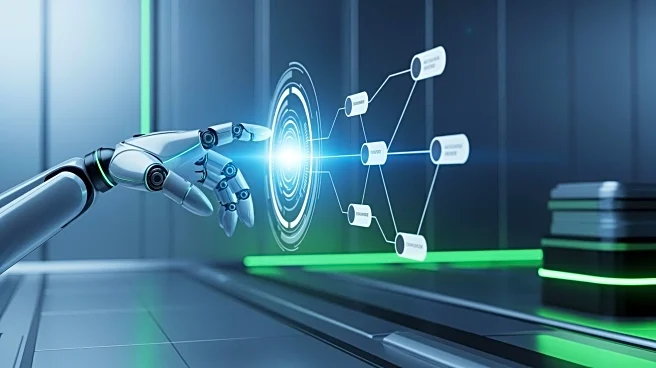What's Happening?
Silicon Valley is undergoing a significant shift in its approach to artificial intelligence (AI), moving away from the pursuit of full autonomy towards a focus on accountability and collaboration. The industry has recognized that while AI will not replace
every job, the emphasis on creating fully autonomous systems has led to an 'automation theater' where impressive demonstrations do not translate into effective real-world applications. In high-stakes fields such as law and finance, the consequences of errors are severe, highlighting the need for AI systems that integrate human oversight and judgment. Companies like Thomson Reuters are leading this change by developing AI systems that prioritize transparency, accountability, and collaboration, ensuring that AI complements rather than replaces human decision-making.
Why It's Important?
This shift in focus is crucial for the sustainable integration of AI into various industries. By prioritizing collaboration over autonomy, companies can enhance trust in AI systems, which is essential for their widespread adoption. The move towards systems that explain their reasoning and involve human validation addresses the critical need for accountability in high-stakes environments. This approach not only mitigates the risks associated with AI errors but also enhances the capabilities of professionals by allowing them to leverage AI for better decision-making. As a result, industries that adopt this collaborative model stand to benefit from increased efficiency and improved outcomes, while also setting a new standard for AI development.
What's Next?
The future of AI development will likely see increased emphasis on designing systems that facilitate human-AI collaboration. Companies are expected to invest in technologies that make AI processes transparent and accountable, fostering trust among users. This trend may lead to new industry standards and regulations that prioritize collaboration and accountability in AI systems. As the industry moves away from the 'automation theater,' stakeholders, including businesses and policymakers, will need to adapt to this new paradigm, potentially reshaping the landscape of AI innovation and its applications across various sectors.
Beyond the Headlines
The transition from autonomy to collaboration in AI development raises important ethical and cultural considerations. By involving human oversight, AI systems can better align with societal values and ethical standards, reducing the risk of biased or harmful outcomes. This shift also reflects a broader cultural change in how technology is perceived and utilized, emphasizing the importance of human judgment and expertise in the digital age. As AI continues to evolve, the balance between technological advancement and human values will remain a critical area of focus for developers and policymakers alike.















